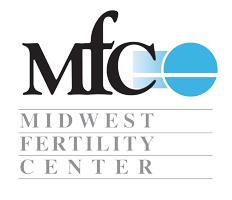Experiencing a miscarriage is deeply personal and can be profoundly challenging. Whether this is your first loss or you’ve endured multiple, it’s a journey that often involves a range of emotions, from grief and confusion to sadness and longing. Many individuals and couples face difficult questions, like how to cope, when to seek support, and when it might be okay to try again.
Understanding the Healing Process
Miscarriage is far more common than many realize, affecting about 10-20% of known pregnancies. But knowing this doesn’t always make the emotional impact easier. Healing from a miscarriage involves processing not only the physical aspects but also the emotional and psychological ones. Here’s a look at some steps that can help:
1. Acknowledge Your Emotions
Allow yourself to feel your emotions—grief, anger, sadness, or even guilt. It’s natural to have mixed emotions, and suppressing them can make healing harder. Miscarriage is a loss, and acknowledging that allows you to start the process of moving forward.
2. Seek Support
Surround yourself with supportive friends, family, or professionals. If you feel comfortable, share your experience with loved ones; you may be surprised to learn that others have gone through similar experiences. Support groups, whether online or in-person, can also be invaluable, as they provide a safe space to share and heal.
3. Practice Self-Compassion
Remember, miscarriage is rarely something anyone can control. Blaming yourself or questioning past actions is natural, but it’s important to practice self-compassion. Be gentle with yourself and focus on what you need to feel whole again.
4. Give Yourself Time
Healing isn’t linear, and there is no “right” amount of time to grieve. Some people feel ready to try again within a few months, while others need a year or more. Honor your timeline and remember that there is no rush.
Physical Recovery After Miscarriage
Physical recovery after miscarriage varies depending on how far along the pregnancy was and the type of care you received. Most people physically recover within a few weeks, but it’s important to work closely with your healthcare provider https://mfcfamily.com/ to ensure complete healing.
– Rest and Replenish: Take time to rest and let your body recover. Prioritize nutritious foods, hydration, and gentle activity as advised by your doctor.
– Follow Medical Guidance: After a miscarriage, it’s important to have a follow-up visit with your doctor https://mfcfamily.com/ to ensure that everything has returned to normal and that no further intervention is needed.
When Can I Try Again?
When to try again after a miscarriage is a deeply personal choice, and it also depends on physical readiness.
1. Physical Considerations: Medically, your body often recovers quickly after a miscarriage, and in many cases, doctors say that physically, it’s safe to conceive again after one or two menstrual cycles. This allows the uterine lining to rebuild and prepare for a new pregnancy.
2. Emotional Readiness: Emotional readiness can take longer to determine. Some may feel hopeful and ready to try again soon, while others need additional time to grieve and process. Be honest with yourself and your partner about your emotions and needs.
3. Doctor’s Advice: Your healthcare provider https://mfcfamily.com/ may have specific recommendations, especially if there were medical factors that contributed to the miscarriage. In cases of recurrent miscarriages, your doctor might suggest further testing or treatment to help you prepare for a healthy future pregnancy.
Steps to Take When You’re Ready
1. Preconception Health Check: Before trying again, consider scheduling a preconception visit with your doctor. This can include discussions about nutrition, lifestyle habits, and any supplements that could support a healthy pregnancy.
2. Healthy Lifestyle Choices: Focus on building a healthy foundation by maintaining a balanced diet, getting regular exercise, managing stress, and avoiding alcohol or tobacco.
3. Track Your Cycle: Tracking ovulation can help you understand your cycle better and identify your most fertile days.
4. Stay Connected with Your Support System: Trying to conceive after a miscarriage can come with its own emotional challenges. Staying connected to supportive people—whether that’s a therapist, a support group, or understanding friends—can make a big difference.
Moving Forward with Hope and Care
Moving on after a miscarriage doesn’t mean forgetting the experience or the loss. Every person’s journey is unique, and there is no single “right” path. As you move forward, surround yourself with supportive people, be patient with yourself, and trust that with time, you’ll find a way to move forward with hope.
If you’re considering trying again, remember to lean on your healthcare team and listen to your body and heart. In time, you’ll find your path, whether it leads to another pregnancy or other fulfilling chapters.

